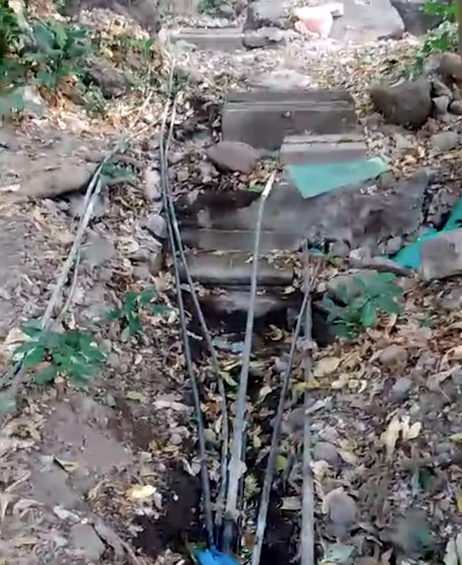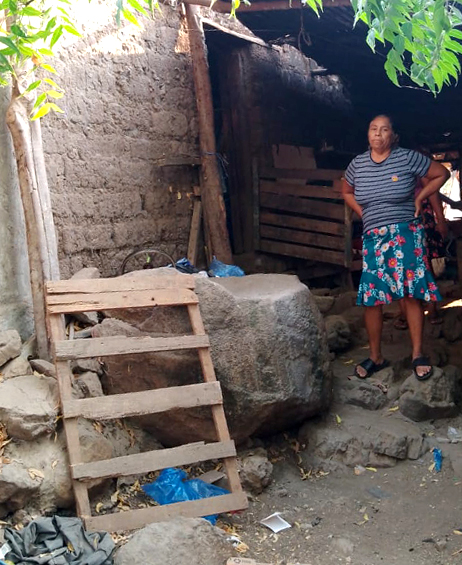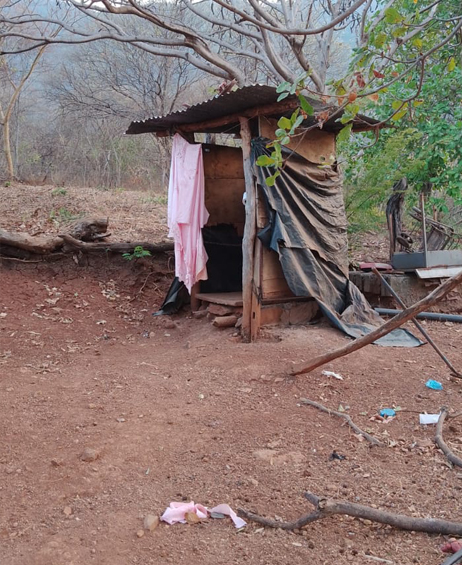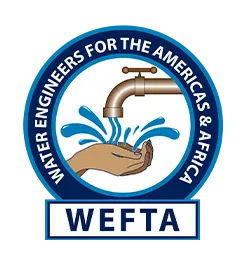
Los Riitos Water System Improvements
DONATE TODAY and DOUBLE YOUR IMPACT!
Donations to this project will be matched dollar for dollar through a generous sponsor until our goal has been met!
Total Project Cost: $21,300
Project Location: Caserío Los Riitos, Municipality of San Miguel, El Salvador
Project & Program Background
WEFTA is proud to partner with Paso Pacífico on this project with our common goals to improve access to potable water and adequate sanitation while empowering the communities to improve health and resources conservation in the region.
The community of Los Riitos faces significant challenges in terms of access to water and sanitation. Interviews revealed that the schools and homes lack an adequate water supply, relying on hauling water from a well located near a community church. An earthquake in May 2019 exacerbated this situation, drying up local water sources. The attempt to drill wells resulted in the production of warm geothermal water which is not ideal for human consumption.
This water crisis has a negative impact on the quality of life of the community. In addition, the absence of drainage systems and the common use of latrines without septic tanks raise serious concerns about wastewater management. These conditions highlight the need for comprehensive interventions in water and sanitation infrastructure to address these shortcomings and improve the living conditions of residents, while also contributing to preventing contamination of the Lake Olomega adjacent to the community and within the watershed of multiple communities in the area.
Community Background
Los Riitos, located on the shores of the Olomega Lagoon in San Miguel, El Salvador, encompasses a diverse habitat that includes peat-filled swamps, moist grasslands, and secondary forests. With a tropical climate and an economy based on subsistence agriculture and artisanal fishing, the community faces challenges in accessing basic services. Lack of clean water, adequate sanitation and decent housing are major concerns. In addition, the limited availability of health care and education affects the quality of life of residents. These problems require interventions to improve living conditions and promote sustainable development in the community.
Water, Sanitation, and Hygiene (WASH) Concerns
The community faces water scarcity and lacks adequate drainage systems, resulting in unhealthy waste management practices. It aims to implement safe drinking water systems, adequate sanitation infrastructure, and hygiene education programs. This will benefit public health by reducing waterborne diseases and promoting healthy practices. In addition, access to water is a basic service and a fundamental human right, and not being vulnerable or lacking it simply improves the quality of life for all. Improving these conditions will not only benefit the community of Los Riitos but will also contribute to the overall well-being and prosperity of the region.
Proposed Projects
This project addresses critical water, sanitation, and hygiene needs faced by the community of Los Riitos. The goal is to improve the water and sanitation infrastructure of the community of Los Riitos, including drinking water systems, wastewater treatment and hygiene education. Prioritizing the design of an adequate solution for wastewater management in homes and ensuring safe and sustainable access to drinking water in this community. This effort will help community residents improve sanitation and hygiene conditions, contributing to their health and quality of life.
Sustainability Considerations
WEFTA and Paso Pacífico promote a participatory and collaborative approach to ensure the sustainability of the project. Project beneficiaries will be trained to operate and maintain water and sanitation systems. Local committees will be established to monitor and manage water resources in a sustainable manner. Collaboration with government entities and key actors will be sought to ensure effective policy implementation and long-term resource allocation, which is critical for their continuity. In addition, sustainable technologies will be promoted.
Community Engagement
The approach that is planned to be implemented involves finding an appropriate solution with the participation of the community, adapting to their needs. This is intended to empower the community through the creation of local committees in charge of managing water resources. The community will also participate in the construction of the infrastructure, encouraging the contribution of available materials. Community members will be trained in the operation and maintenance of the systems through local committees, ensuring their long-term sustainability. This close collaboration will ensure a solution tailored to local needs and promote a sense of ownership and shared responsibility towards water and sanitation infrastructure.
WEFTA Volunteers
WEFTA volunteers will play an integral role at all stages of the project. In the assessment phase, they will contribute to data collection and analysis to identify the specific needs of communities. During the design of the project, they will collaborate in the development of solutions adapted to these needs. In the construction phase, they will actively participate in the fieldwork, providing workforce and logistical support. After construction, they will remain involved in the monitoring and evaluation of the project to ensure its long-term sustainability. In short, WEFTA volunteers will play a crucial role in all stages of the project, from initial assessment to post-construction follow-up, ensuring the success and sustainability of the project.
WEFTA will donate engineering and post-construction follow-up services to this project, equating to 15% of the total project cost.
For additional information about this project, please contact us.
Donate to the Los Riitos Water System Improvements Project



According to U.N. estimates, at least
27% of Salvadorans live in poverty.
El Salvador has extraordinarily high levels of water pollution.
